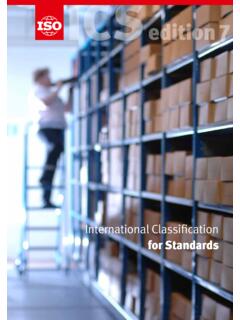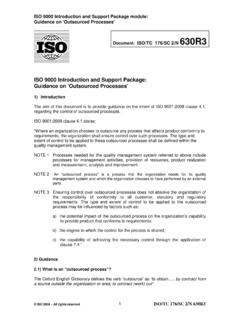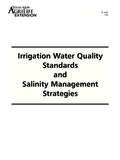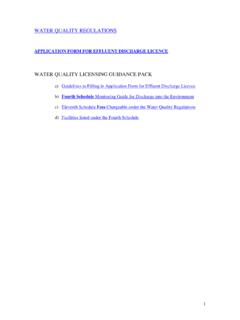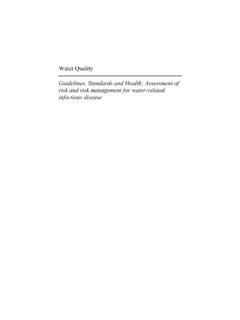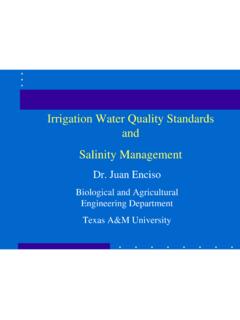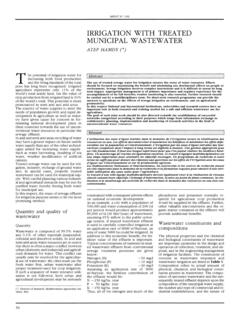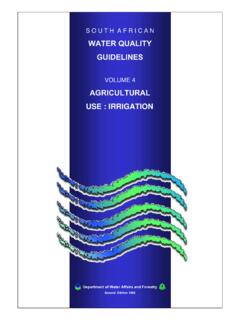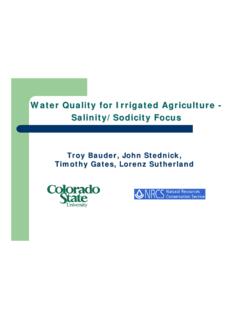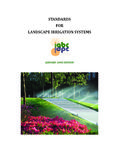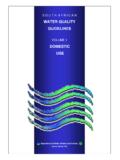Transcription of and water - ISO
1 Great things happen when the world and waterWe are an independent, non-governmental are a global network of national standards bodies with one member per are not for profit : selling our standards allows us to finance their development in a neutral environment, to maintain them and to make new job is to make International standards . We are coordinated by a Central Secretariat in Geneva, are ISO, the International Organization for StandardizationISO provides a platform for developing practical tools through common understanding and cooperation with all stakeholders.
2 21 350* International Standards100new standards each month238* technical committees161* membersNotice that our acronym doesn t match our name ? It s not meant to. ISO is derived from the Greek word isos (equal), so that it s the same in all languages. * February 20174 Why do we need ISO standards for water ?Around 40 % of the world s population doesn t have enough water and, for those that do, pollution remains a real and serious problem. water is also an international resource and challenge. Rivers and lakes cross national boundaries while droughts and climate change affect us standards offer harmonized technology and terminology, allowing countries sharing the same water resources to work together standards cover almost every water issue, from pipes and irrigation to water quality , management and standards represent consensus on practical solutions and best practice for sustainable water is one of the world s most essential commodities and the most precious.
3 It is a key element of a sustainable future and a vital ingredient for renewable energy sources, food production and improving sanitation and health. 7 ISO standards for water help businesses in a variety of ways, with tools for measuring water use and methods to optimize it, as well as offering best practice on the treatment and use of wastewater, the provision of water services and the use of irrigation in agriculture, manufacturing and can rely on ISO standards as a solid base on which to create public policy that helps address water -related challenges, such as climate change impacts and sanitation.
4 To achieve their national and international water management benefit from ISO standards when they are used by business and authorities to improve the quality of drinking water , water supply services, sanitation, water quality , and water use in food production and benefits from ISO standards for water ?IndustryRegulatorsConsumersWhat water -related sectors does ISO cover ?8 water qualityWater footprintingHydrometryDrinking waterWastewaterIrrigationInfrastructureP iping and valvesMeasurement of fluid flowWater reuse9 Out of a total of more than 21 300 International standards , ISO has more than 1 200 related to water , with many more in is a selection of our water standards : Who develops ISO standards ?
5 ISO standards are developed by groups of experts within technical committees (TCs). TCs are made up of representatives from industry, non-governmental organizations, governments and other stakeholders who are put forward by ISO s members. Each TC deals with a different subject; when it comes to water , for example, there are committees focused on measuring our water footprint, water quality , sanitation and wastewater, to name a few. Visit our Website to find out more about the standards developed in a particular sector by searching for the work of the relevant technical committee.
6 What standards does ISO have for water ? water quality Our water quality standards are developed by ISO/TC 147, water quality ISO has nearly 300 standards for water quality , applicable to everything from plant treatment agents to natural mineral waters. They provide a common terminology, water sampling methods and guidance on report-ing and monitoring to determine a variety of properties and contaminants, from min-eral content to the level of bacteria and footprint ISO 14046 was developed by ISO technical committee ISO/TC 207/SC 5, Life-cycle assessmentThis standard provides basic requirements for the measurement and reporting of a water footprint , setting an international benchmark for water use.
7 10 Hydrometry Our hydrometry standards are developed by ISO/TC 113, HydrometryISO has around 70 standards for water and sediment measurement in open channels, including movement and availability of groundwater. They enable reliable and accurate measurements to support water planning and and irrigation ISO standards for irrigation are developed by ISO/TC 23/SC 18, irrigation and drainage equipment and systemsThey ensure greater efficiency by providing test methods and performance measurement. Agriculture is crucial to food production and accounts for a huge proportion of the world s freshwater use.
8 Giving a boost to sustainability, the ISO 16075 series of standards (developed by ISO/TC 282, water reuse) provides guidelines for treated wastewater use in irrigation projects. In addition, an International Workshop Agreement (IWA 20), which is currently being developed in collaboration with the standards Institution of Israel, provides information destined to advance the worldwide use of a sustainable drip irrigation footprintWater is a scarce and valuable commodity and how we use it can have an enormous impact on how much we consume. Understanding an organization s environmental impact from water consumption and production is a vital step towards finding strategies for improved 14046, Environmental management water footprint Principles, requirements and guidelines, is designed to help organizations estimate the potential impact of their water use, thereby facilitating ways to improve efficiency and reduce overall 14073*, Environmental management water footprint Illustrative examples on how to apply ISO 14046.
9 Provides extra guidance to help organizations get more out of their water footprinting assessment.*Under development11 Infrastructure water flow and metering standards are developed by ISO/TC 30, Measurement of fluid flow in closed conduits standards for measuring fluid flow can help with water conservation. In particular, the ISO 4064 series defines the requirements for water meters that monitor both cold drinking water and hot water , covering everything from test methods to recovery, recycling, treatment and disposal ISO/TC 275, Sludge recovery, recycling, treatment and disposalISO has standards defining the methods for characterizing, categorizing, preparing, treating, recycling and managing sludge and products from urban wastewater collection systems, night soil, storm water .
10 water supply treatment plants and wastewater treatment plants for urban and similar industrial waters. 13 Drinking water supply and wastewater systems ISO/TC 224, Service activities relating to drinking water supply systems and wastewater systems quality criteria of the service and performance indicatorsThe three key standards for this committee are ISO 24510, ISO 24511 and ISO 24512, Activities relating to drinking water and wastewater services. They provide guidelines for the assessment, improvement and management of service activities for drinking water and wastewater systems.




